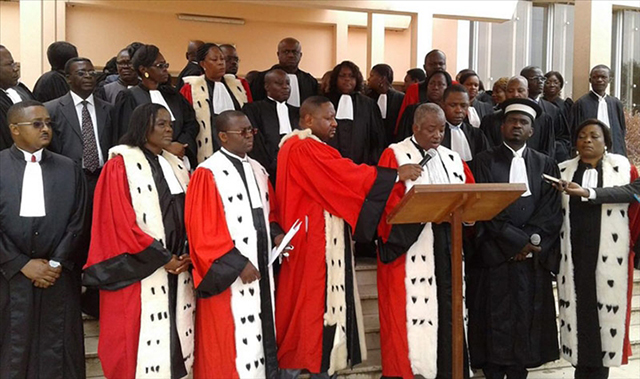Rescue teams in Morocco are racing against time to search for survivors among the rubble, on the third day since the devastating earthquake that struck the country, leaving the largest number of victims in more than 6 decades.
This comes at a time when the Moroccan Ministry of the Interior announced that the number of victims had risen to 2,497 dead and 2,476 injured, with the authorities continuing their efforts to rescue and evacuate the wounded.
At the same time, members of the Moroccan armed forces continued their search operations among the rubble to search for survivors or recover bodies, while foreign rescue teams joined these efforts, especially in the mountainous villages south of the old city of Marrakesh.
Offers of international aid came to the Moroccan authorities, which were accepted by 4 countries: “the Emirates, Spain, Qatar, and the United Kingdom.”
These efforts raised many questions about when the search for survivors under the rubble will continue, how long the stranded people can endure since the earthquake occurred, and when the Moroccan authorities will decide to end the search operations and begin the rubble removal and reconstruction phase.
For his part, professor and forensic medicine expert, Iman Al-Zahid, said in exclusive statements to “Sky News Arabia” that there are a number of determinants that are related to the process of searching for survivors, the most important of which is the way they were affected at the time of the earthquake, and whether there were minor injuries. Or serious among them.
The forensic expert identified these factors in a number of points, saying:
The location of the stranded person is very important in determining their endurance. If he is in a narrow place with a lack of oxygen and difficulty breathing, there will be difficulty in his survival, and he may not be able to live for more than 3 days, depending on the availability of ventilation. Collapses usually result in dirt and dust that cause the nostril to close and lead to suffocation, or what is scientifically called “asphyxia”, and then there is no chance of survival. It is a condition that is a state of severe lack of oxygen supply to the body, which results from abnormal breathing or high blood pressure. The level of carbon dioxide in the blood is such that it prevents cells from performing their functions. A person may tolerate a lack of water for about a week or a little more, or he may endure hunger for 3 days, but the biggest problem is the availability of oxygen. Another thing that relates to the chances of there being survivors is the degree of the person’s injury, and whether it is serious or there is bleeding or not. After about a week or a little more, according to the data in front of them, the rescue teams are close to closing the search for survivors, and they begin the next stages of removing the rubble. In the event that there are victims that rescuers cannot identify, there are several methods, either by visual examination in general, of clothing and gold jewelry, especially if there are relatives alive within the scope of the earthquake, or by fingerprints, or genetic analyses. In some areas, identification is done through dental examination and comparison with examinations previously performed on the person.
Difficult humanitarian conditions
Many of the survivors spent a third night outdoors after their homes were destroyed or made unsafe due to the most violent earthquake to hit Morocco since at least 1900.
In the village of Tafjigt, Hamid bin Hana described how his 8-year-old son died under the rubble after he went to get a knife from the kitchen while the family was eating dinner, and the family survived.
People were pulling their belongings from the rubble of their homes, telling desperate stories, and digging with their hands to search for their relatives.
What happens after the search for survivors ends?
Experts say that rescue operations in earthquake cases usually consist of several stages, and are carried out in coordination between the government, local authorities, volunteers, and humanitarian institutions.
Search operations are the top priority of rescue personnel. When the completion of this stage is announced, this means that the chances of finding survivors alive under the rubble have become almost non-existent.
After stopping search efforts, the authorities will move to the stage of removing the rubble, assessing the damage and rebuilding, in addition to paying attention to the health and psychological health of the survivors.
Debris removal: It means removing debris from collapsed buildings, trees, broken rocks, and other materials that accumulate after an earthquake. At this stage, heavy equipment and special machinery are being used to remove the debris in a safe and effective manner. Damage assessment: During this stage, the damage and material losses to the areas that witnessed the earthquake are assessed. This assessment helps in developing a comprehensive and clear plan for reconstruction. Reconstruction: This phase includes rebuilding destroyed facilities, rehabilitating damaged areas, and providing the necessary support to the injured and survivors.
2023-09-11 20:14:16
#Morocco #earthquake. #long #search #survivors #continue #Sky #News #Arabia #Sky #News #Arabia

